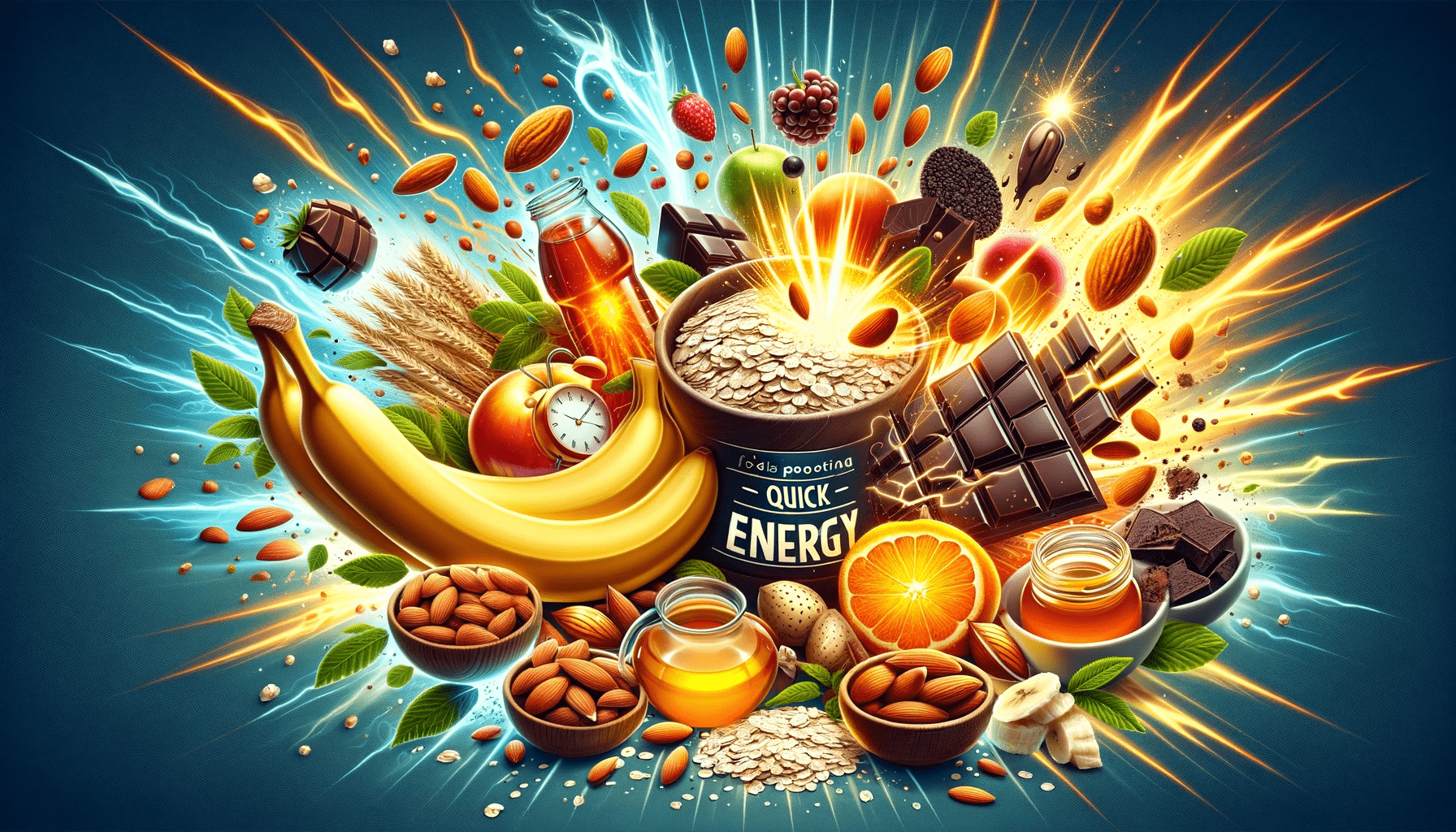In today's fast-paced world, maintaining a high energy level throughout the day is essential for productivity and overall well-being. While sleep, exercise, and stress management are critical components of energy management, diet plays a pivotal role in how energetic we feel. Certain foods can provide a quick energy boost, helping us to overcome slumps and maintain alertness. This article delves into the types of foods that can quickly elevate energy levels, their mechanisms of action, and how to incorporate them into your diet effectively.
Understanding Energy-Boosting Foods
Energy-boosting foods typically provide glucose—the body's primary energy source—rapidly or contain nutrients that aid in energy production more efficiently. However, it's important to distinguish between foods that offer a quick, short-term spike in energy and those that provide a more sustained release, preventing the crash that often follows the consumption of highly refined carbohydrates.
Quick Energy Foods
1. Simple Carbohydrates: Fruits like bananas, apples, and oranges are excellent for a quick energy boost. They contain natural sugars (fructose) and fiber, which helps moderate blood sugar levels. Dried fruits, such as dates and raisins, are also energy-dense options that provide immediate glucose.
2. Whole Grains: Foods like whole-grain bread, brown rice, and oatmeal have a low glycemic index, meaning they provide a steady release of energy over time, but they can still offer relatively quick energy compared to other complex carbohydrates, thanks to their fiber content and complex carbohydrates.
3. Nuts and Seeds: Almonds, walnuts, chia seeds, and flaxseeds are not only packed with healthy fats but also contain protein and fiber, making them great for a quick but lasting energy lift.
4. Yogurt: Particularly Greek yogurt, offers a combination of carbohydrates and protein, providing an immediate energy boost while stabilizing blood sugar levels.
5. Dark Chocolate: The caffeine found in dark chocolate can provide a quick energy boost, while its high content of iron and magnesium helps improve energy production in a more sustained manner.
6. Honey: A natural sweetener that can provide a quick source of calories and energy. Its natural sugars — fructose and glucose — are directly absorbed into the bloodstream.
The Science Behind Energy Foods
The body's energy production hinges on the breakdown of food into glucose. Simple carbohydrates provide rapid energy because they are quickly digested and absorbed into the bloodstream. However, this quick release of glucose causes blood sugar levels to spike, leading to a surge in energy followed by a rapid decline.
To mitigate this effect and ensure a steady energy supply, it's beneficial to pair simple carbs with proteins, fats, or fiber. These combinations slow the absorption of sugar into the bloodstream, providing more sustained energy levels without the dramatic peaks and troughs.
Incorporating Energy Foods into Your Diet
For Immediate Energy:
- Pre-Workout: Consume a banana or a piece of dark chocolate 30 minutes before exercising for a quick energy boost.
- Midday Slump: Snack on a handful of nuts or a Greek yogurt to overcome afternoon fatigue without resorting to high-sugar options.
For Sustained Energy:
- Breakfast: Start your day with oatmeal topped with fresh fruit and a sprinkle of chia seeds. This combination provides both immediate and prolonged energy.
- Lunch and Dinner: Include a portion of whole grains like quinoa or brown rice alongside your protein and vegetables to ensure a steady release of energy throughout the afternoon and evening.
Hydration: The Unsung Hero of Energy Management
While not a food, water is crucial for maintaining optimal energy levels. Even mild dehydration can lead to fatigue and decreased concentration. Drinking water throughout the day can help sustain energy levels, especially before and after meals.
Conclusion
The key to leveraging food for energy lies in choosing the right types of foods and understanding how they interact with the body's energy systems. By opting for natural, minimally processed foods and combining macronutrients wisely, it's possible to achieve both immediate and sustained energy boosts. Incorporating a variety of these foods into your daily diet can help manage energy levels effectively, improving overall productivity and well-being.
Discover Energy boosters on the Amazon store : link

Leave a comment